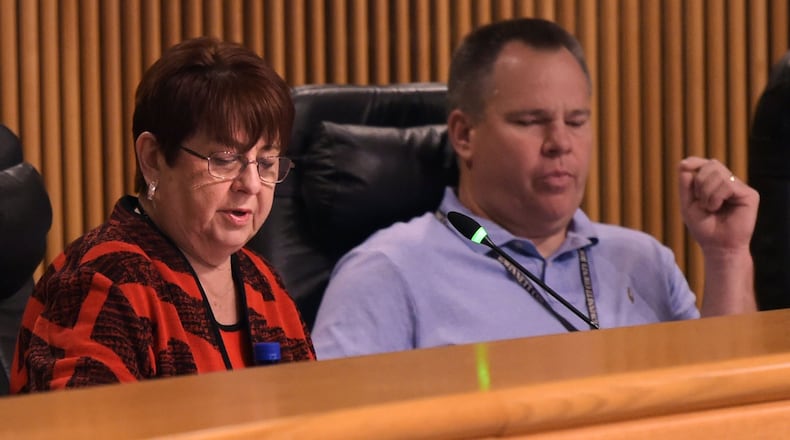Gwinnett Commissioner Tommy Hunter has filed another appeal in his lawsuit against the county ethics board that recommended his reprimand last year.
Unlike the first, this appeal is likely to actually send the case to Georgia's Supreme Court — where a recent ruling in a similar matter adds an interesting wrinkle to the already lengthy saga.
Hunter was reprimanded last summer at the recommendation of Gwinnett's first-ever ethics board, which had investigated Hunter's controversial Facebook posts — including the now-infamous missive in which he called U.S. Rep. John Lewis a "racist pig" — and other activities.
Hunter filed a lawsuit challenging his reprimand, arguing that the ethics board was unconstitutional because some of its members were appointed by private entities, not public officials with the proper delegation powers.
After more than a year of legal wrangling, the original apeal filed by Hunter attorney Dwight Thomas was dismissed last month on what, essentially, amounted to a technicality.
A subsequent ruling paved the way for the new notice of appeal that Thomas filed last week.
That appeal is likely to send the case to the Georgia Supreme Court, where justices recently ruled on similar ethics board case out of DeKalb County.
In that case, former DeKalb Commissioner Sharon Barnes Sutton had argued that the county’s ethics board was illegal because it gave outside groups like the local bar association and chamber of commerce the power to appoint members.
"As these private entities do not answer to the people as required by our Constitution, they are not authorized to wield the power to appoint public officials to the DeKalb County Board of Ethics," Presiding Justice Harold D. Melton wrote in the unanimous opinion.
Gwinnett uses a similar system for several of its appointments, though county officials have argued that their ethics board is different — and not effected by the ruling — because it is merely a recommending body. Gwinnett’s Board of Commissioners makes the ultimate decision about whether or not to discipline the subject of an ethics complaint, and may choose to ignore the ethics board’s recommendations altogether.
DeKalb’s ethics board wields — or did wield — direct power to issue punishments.
Whether or not the Supreme Court sees a legal difference between the two may very likely determine the outcome of Hunter’s case.
A potential time frame for Hunter’s case to be docketed in the state’s highest court was not immediately clear, though it could be at least 45 days. Thomas asked for that much time to have a transcript from a previous hearing in the case produced.
About the Author
Keep Reading
The Latest
Featured


